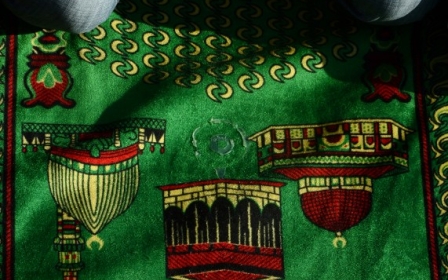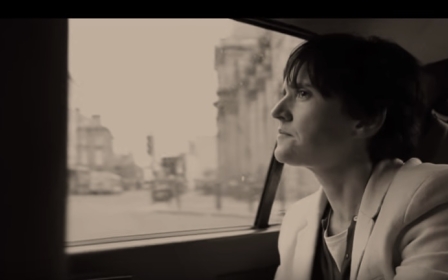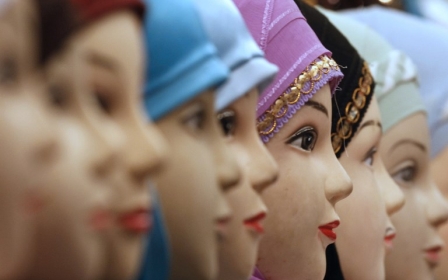German supermarket shelves left empty in anti-racism campaign

A supermarket in Germany took all products made outside Germany off the shelves, leaving them barren in an attempt to highlight racism within the community.
The Hamburg-based supermarket called Edeka replaced the products with signs bearing anti-racism messages to protest against xenophobia.
One sign read: “So empty is a shelf without foreigners.”
Other signs read: “Our range knows no borders” and “we will be poorer without diversity”.
“It is thanks to the products from other countries that we have created the unique diversity which is appreciated by our clients,” said the spokeswoman for the large supermarket chain.
Edeka’s move was welcomed by many social media users.
Translation: Edeka in Hamburg’s HafenCity takes action against racism
Translation: Thank you Edeka for the initiative: in Hamburg, a supermarket cleared its aisles of foreign products
Despite the initiative's overall popularity, some people criticised the move, with one social media user making a comparison between empty shelves and empty prisons.
Translation: Edeka – so empty is a shelf without foreigners. Germany – so empty is a jail without foreigners
Islamophobia in Germany
Islamophobia has been on the rise in Germany, with the government announcing that 91 mosques had been attacked in the country in 2016 alone.
In March, a high school in Germany banned Muslim students from using prayer mats and carrying out other Islamic rituals, saying that they were "provocative" to fellow students.
The school also asked staff to report any cases of Muslims praying on the school premises.
The supermarket’s move against rising xenophobia and racist sentiment comes after Germany banned the country’s main online platform for "far-left" activists following riots in Hamburg during a G20 summit.
The site has been used by anonymous users to announce demonstrations or blockades of neo-Nazi rallies, and has also celebrated violence against police and even shared instructions on how to make a Molotov cocktail.
Immigration has become a key theme in German politics, especially following Chancellor Angela Merkel’s move to allow over a million refugees into the country in 2015.
Stay informed with MEE's newsletters
Sign up to get the latest alerts, insights and analysis, starting with Turkey Unpacked
Middle East Eye delivers independent and unrivalled coverage and analysis of the Middle East, North Africa and beyond. To learn more about republishing this content and the associated fees, please fill out this form. More about MEE can be found here.




